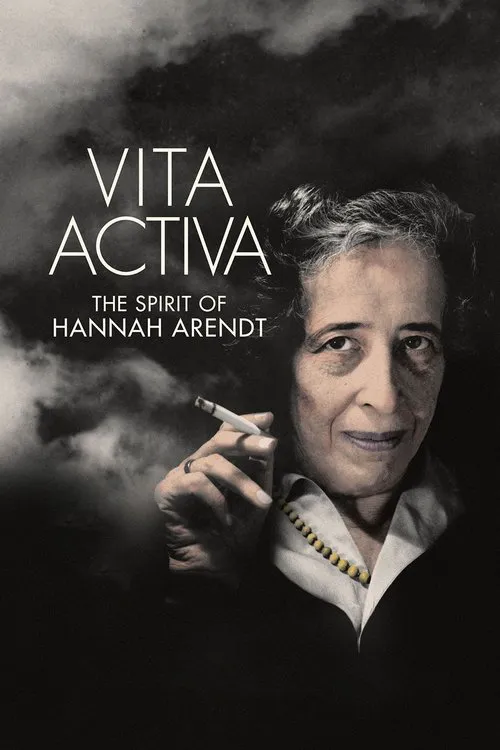Vita Activa: The Spirit of Hannah Arendt

Enredo
The documentary "Vita Activa: The Spirit of Hannah Arendt" explores the life and work of one of the most influential philosophers of the 20th century, Hannah Arendt. Born in 1906 in Hannover, Germany, to a Jewish family, Arendt's early life was marked by the rapidly changing world around her. In 1924, she left for Berlin, where she became increasingly involved in the vibrant intellectual scene, associating with prominent thinkers and writers of the time, including Walter Benjamin and Heinrich Blücher, whom she would later marry. However, Arendt's life took a dramatic turn with the rise of the Nazi party in Germany. As the years passed, Arendt witnessed firsthand the devastating effects of the totalitarian regime, watching as friends and colleagues were imprisoned, tortured, and murdered. This experience had a profound impact on her, shaping her thoughts on politics, morality, and human nature. In 1933, following Hitler's appointment as Chancellor, Arendt fled Germany to escape persecution, eventually settling in Paris. It was during her time in Paris that Arendt began to develop her unique philosophical perspective, which would come to define her work. Her experiences as a refugee and an outsider fueled her critical observations on the nature of power, authority, and human behavior. She began to question the conventional notion of evil as a monstrous or malevolent force, instead positing that it often stems from a lack of individual judgment and accountability. The film delves into Arendt's extensive writings, highlighting her most famous concept: the "banality of evil." This idea, first introduced in her book "Eichmann in Jerusalem: A Report on the Banality of Evil," published in 1963, refers to the tendency of individuals to participate in heinous acts without displaying any particular passion or enthusiasm for them. This, according to Arendt, arises from the widespread normalization of evil within societies, rendering it an everyday, unremarkable occurrence. The "banality of evil" concept was sparked by Arendt's coverage of the 1961 trial of Adolf Eichmann, a mid-ranking Nazi official responsible for organizing the logistics of the Holocaust. As she sat through the trial, transcribing Eichmann's testimony, Arendt began to formulate her theory. The case of Eichmann, who came across as an ordinary, even bland, man, forced Arendt to confront the paradoxical reality that some of the most heinous crimes in human history were committed by people who did not exhibit any particular malice or hatred. Arendt's work was met with both admiration and criticism. Her unflinching portrayal of Eichmann as a bureaucratic cog in the Nazi machine led to accusations of trivializing the Holocaust and downplaying the role of anti-Semitism in the atrocities committed under the Nazi regime. Despite the controversy surrounding her work, Arendt's ideas have had a lasting impact on the fields of philosophy, politics, and history. The documentary also touches on Arendt's tumultuous personal life, including her complex relationships with her husband, Heinrich Blücher, and her lover, Martin Heidegger, the infamous philosopher and former Nazi sympathizer. These relationships, marked by intellectual passion and personal drama, often left Arendt torn between her love for her friends and her outrage at their politics. Throughout the documentary, Arendt's unwavering commitment to her ideas is evident. Her work represents a powerful critique of modernity, revealing the ways in which power structures, ideological convictions, and cultural norms can lead individuals to compromise their moral values and participate in evil acts. By probing the darkest corners of human nature, Arendt's philosophy serves as a poignant reminder of the importance of critical thinking, moral responsibility, and individual agency in the face of the complex, often treacherous world around us. "Vita Activa: The Spirit of Hannah Arendt" is a masterful tribute to a philosopher whose life's work continues to captivate and enlighten us. This thought-provoking documentary offers a nuanced exploration of Arendt's ideas, contextualizing them within the tumultuous world of 20th-century politics. It invites viewers to contemplate the significance of her work, encouraging them to confront the uncomfortable truths about human nature and the darker aspects of history.
Resenhas
Recomendações



